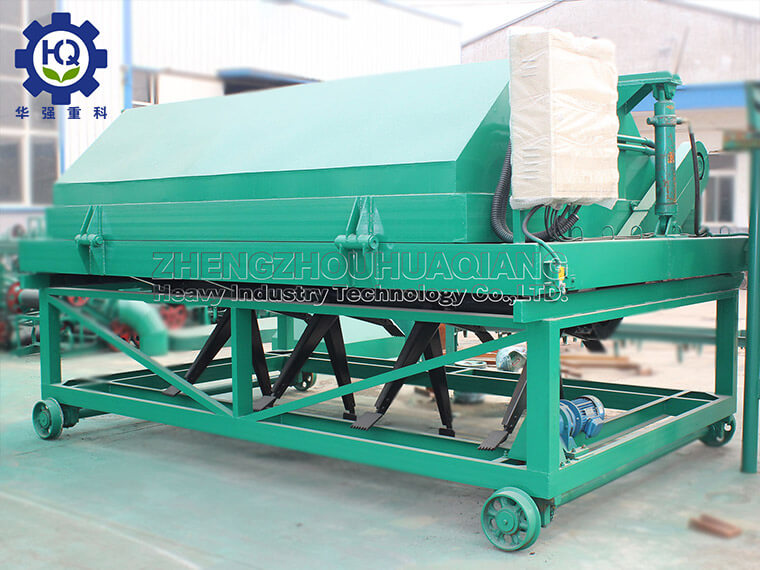When choosing a suitable organic fertilizer turning machine to process cow manure and other organic waste into fertilizer for a cattle farm, multiple factors should be considered to ensure an efficient fertilizer production process and high-quality fertilizer products. The following are important considerations when making a purchase:
1. Processing scale
Capacity demand: Evaluate the total amount of cow manure and other organic waste generated by the cattle farm on a daily or monthly basis, and determine the daily processing capacity of the required turntables.
Site size: Investigate the available space of the cattle farm, select equipment of appropriate size, including length, width, and height limitations of the fermentation area.
2. Material characteristics
Moisture content: Cow manure has a high moisture content, and an ideal organic fertilizer compost turning machine should have good ventilation performance to effectively control moisture and avoid excessive moisture during fermentation.
Solid composition: Consider whether there are more difficult to decompose substances such as cellulose and lignin, and choose a machine with strong crushing and mixing capabilities.
3. Fermentation method
Aerobic fermentation: Priority should be given to organic fertilizer composting machines that support aerobic fermentation to promote the establishment of a healthy microbial community and accelerate the decomposition of organic matter.
Automation level: Choose equipment with high automation level, such as temperature control, humidity monitoring and other functions, to simplify the operation process and improve production efficiency.
4. Economy
Cost effectiveness: Compare the prices, energy consumption, and maintenance costs of different brands and models to find the most cost-effective solution.
Energy conservation and consumption reduction: Choose equipment with high energy efficiency, such as using electric instead of diesel drive, to reduce operating costs and environmental impact.
5. Technical services and support
After sales guarantee: Choose a reputable supplier to ensure that the purchased stacker enjoys comprehensive after-sales service and technical support, and promptly solves any problems encountered during use.
6. Regulatory Compliance
Environmental protection: Ensure that the selected organic fertilizer turning machine complies with local environmental regulations, such as noise and emission standards.
Safety production: Equipment should be equipped with necessary safety measures, such as emergency stop buttons, protective covers, etc., to ensure the safety of workers.
7. User reviews and case studies
Market feedback: Refer to the actual usage experience of other cattle farms to understand the stability and reliability of the equipment.
Field visit: If possible, visit the actual operating site of the stacker crane to visually experience its performance.
In summary, when choosing an organic fertilizer turning machine, cattle farms should comprehensively weigh various indicators, consider their own needs and actual situation, and make the most suitable choice. Proper equipment investment can not only improve fertilizer production efficiency, but also promote the sustainable development of cattle farms.